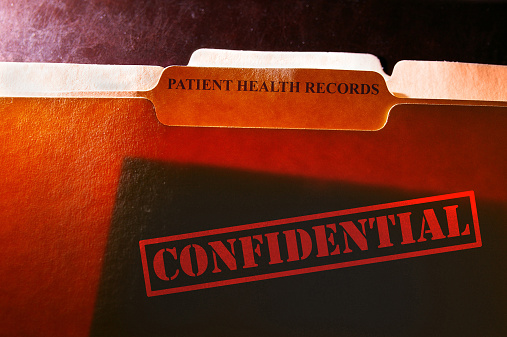Looking for IT Support In Wichita? Call Us Now! (316) 788-1372

In 1996, the Health Insurance Portability and Accountability Act (HIPAA) became law and succeeded in retaining individual privacy and health records as a result of the healthcare industry’s adoption of an electronic transmission method. As we continue to move forward, technology’s future is changing faster than most anticipated as digital information is accessible across the nation, securing electronic data privacy according to HIPAA standards. Using the lessons learned from the past along with present conditions, future projections are focused on the individual’s privacy and the caregiver’s data security systems.

What hasn’t been accomplished as of today is the reduction of personal health information stored in hundreds of folders filed and cataloged in many medical offices. Primarily because these caregivers have become advocates, and, in some ways, HIPAA gatekeepers, performing as records-access go-betweens with the physician, the facilities and pharmacies for the most recent health information data shared by the individual consent forms.
Looking back, the biggest accomplishment is the consistency of sharing and storing information across the U.S. states and within many government organizations without disruption to each state or organization’s independence in how they do business. Still, the main concern for privacy and accuracy exists in human interventions as technological enhancements work to protect and prevent system infractions. Another improvement is the uniformity within the industry to meet both state and federal requirements pertaining to privacy, making it easier to enforce fraud and prevent abuse of healthcare programs.
Compliance
The HIPAA Privacy Standard goals haven’t changed, but the applications of securing privacy needs to match the current technology moving forward to recognize when information is lost or misused or data is transmitted to the wrong location using a sub-set of prevention programming in the Privacy Standard. The challenge initially was to design a user-friendly system to identify the weaknesses in compliance objectives. HIPAA’s periodic audit of healthcare organizations launched this year to verify and strengthen those places that had experienced risk in the past, while monitoring future cybersecurity in preparation for the next phase of changes as the industry increases the use of electronic technology.
Policies
The foundation of HIPAA is securing privacy in the healthcare environment, with training, supervision and personal observation ensuring quality care of treatment. Lawfully, the purpose remains to prevent intrusions with a clear understanding of compliance between our government and the providers for the individual’s protection. The past and present have been the stepping-stones to future health initiatives of electronic data transmission. A recent study based on the forms of transmission shows the majority of breaches occur through the loss or theft of mobile devices followed by cyberattacks. The third cause of breaches comes from internal operations performed by medical staff responsible for data entry. The least amount of interference is from malicious technological sources. The results show that, overall, HIPAA is secure.
Policy Enforcement
As we entered the age of technology, a great deal of curiosity led to furthering HIPAA’s development and the lifestyle changes that are now driven by mobility. Along with these changes, the quality of healthcare has improved, along with fewer medical errors related to treatment and precautions of an individual’s existing condition. In spite of the risks and the trials of electronic data transmission, the healthcare industry has managed to secure privacy and retain confidentiality of information according to HIPAA regulations.
The HITECH Act has been influential in enforcing penalties for violations caused by certified entities, business associates and third-party sharing of information across multiple offices and throughout the hospitals and healthcare networks. Looking for a reliable IT support partner in Wichita that will protect you against these potential threats and HIPAA penalties? Use our expertise, and experience our advantage! Give OneSource Technology a call at (316) 788-1372 or drop us an email at solutions@onesourcetechnology.com.